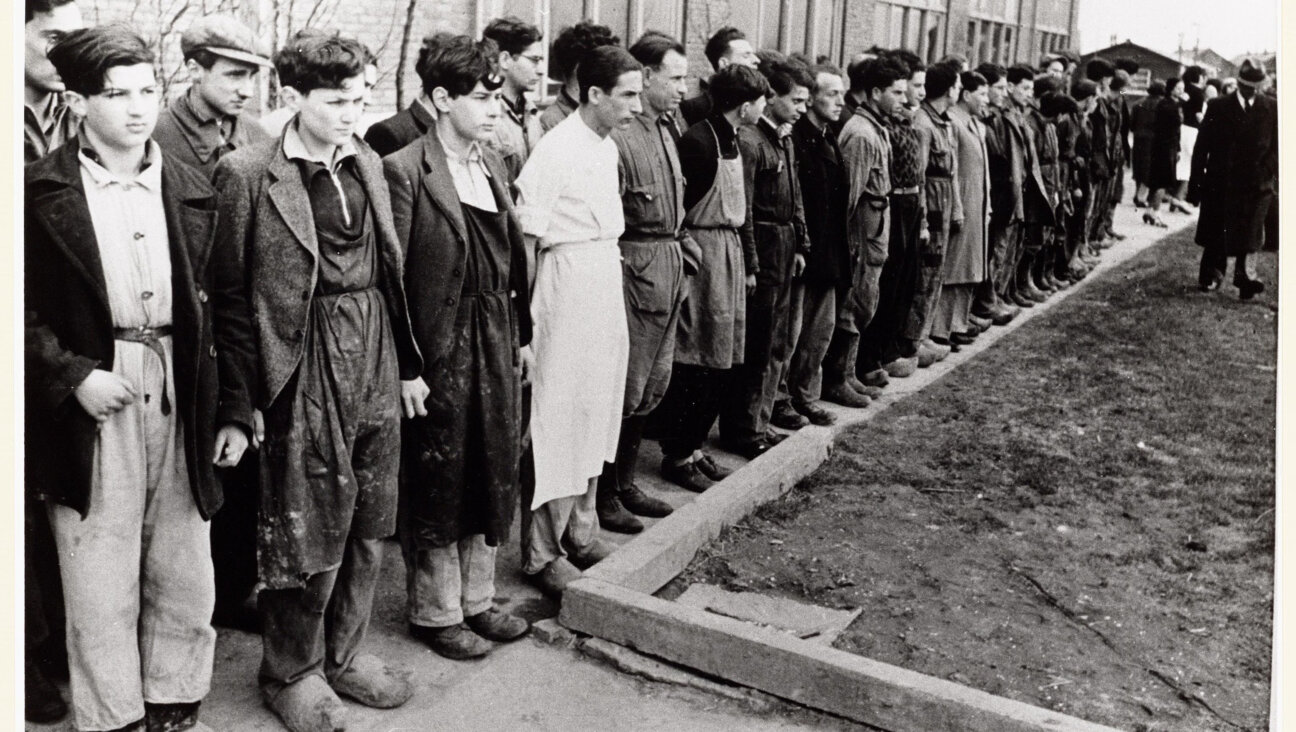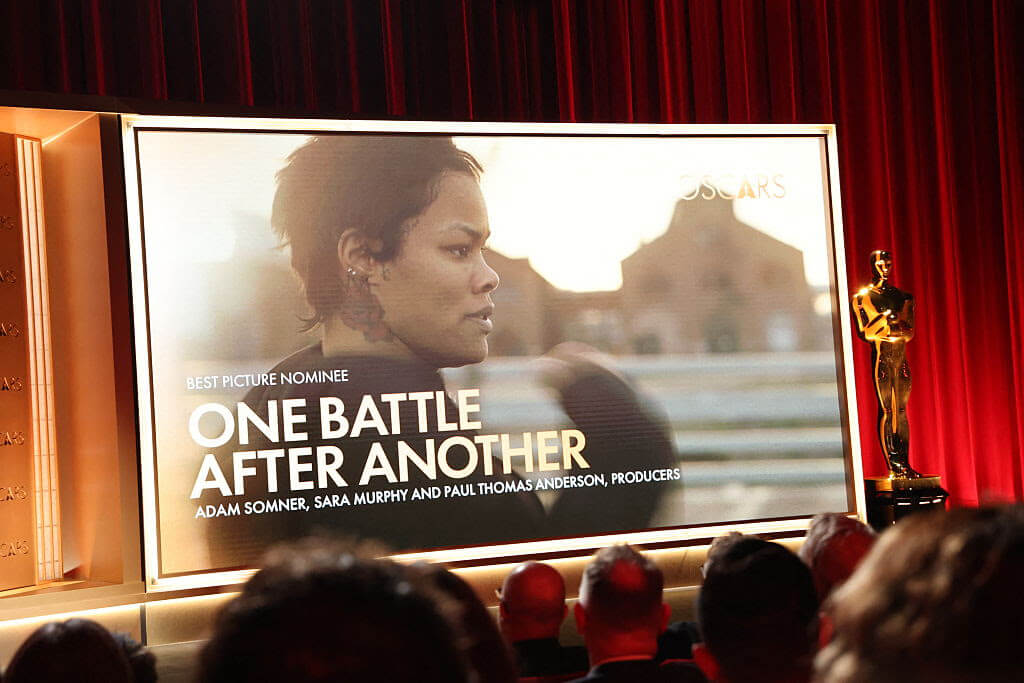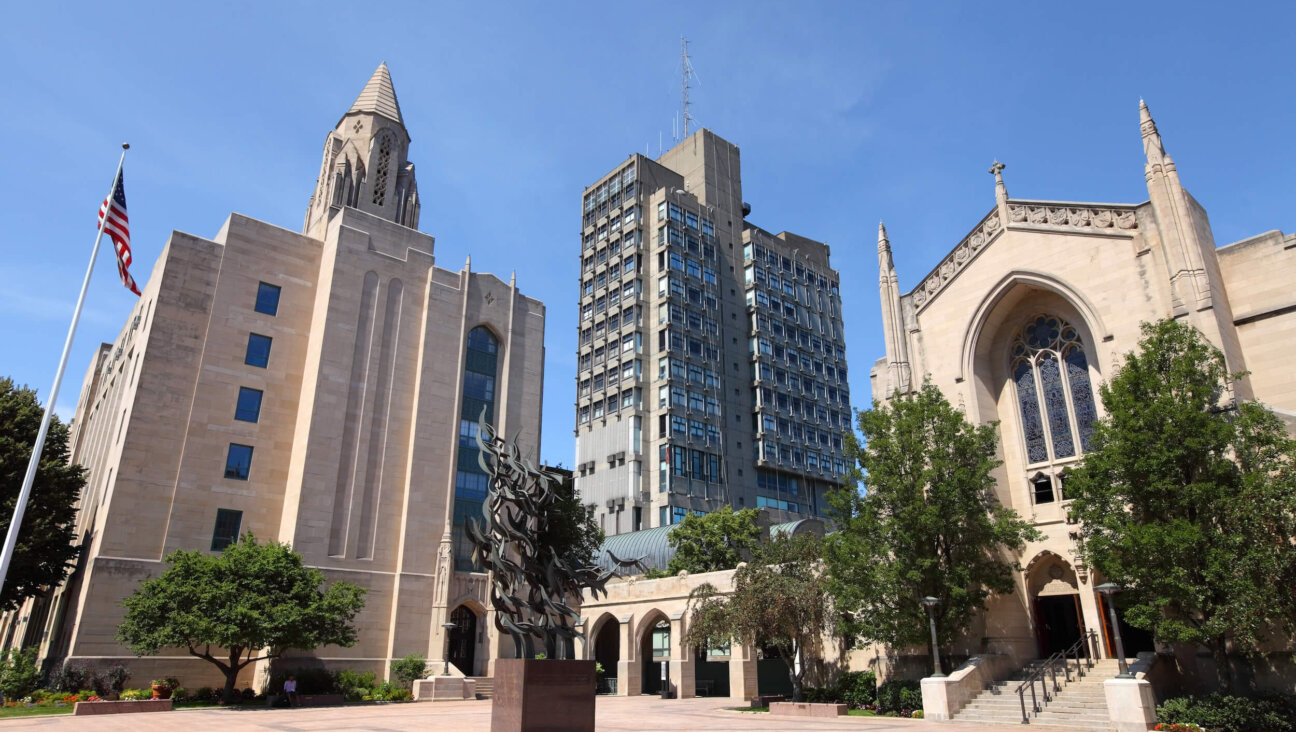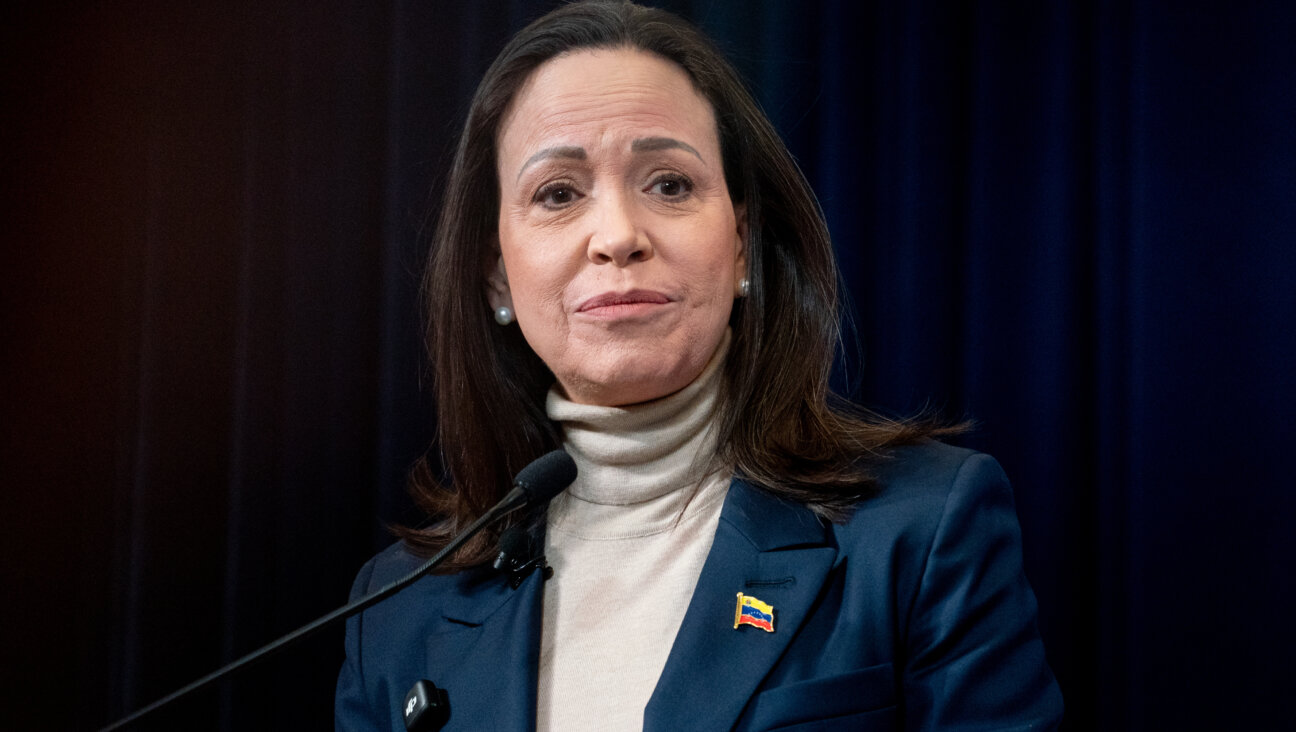On its final night, the RNC abandons religious diversity
A resounding speech from evangelical Franklin Graham made clear that Republicans see America as a Christian nation

People hold signs that say “We are Jews For Trump” at the Republican National Convention. Courtesy of Scott Olson/Getty Images
The first few days of the Republican National Convention, a tone of social liberalism ruled the speeches. Jews and Sikhs prayed on stage, part of a long tradition of diverse prayer at political events. Amber Rose, an OnlyFans creator and founder of the Los Angeles chapter of the feminist march SlutWalk, proclaimed that Donald Trump supported LGBTQ rights. And to add to the chaos, Hulk Hogan ripped his shirt off while yelling about “Trumpomania.”
It was a muddled message from a party whose leader has hobnobbed with white nationalists, and some of whose members have openly declared support for Christian nationalism in the past few years. Sure, speeches still focused on some of the usual Republican bugaboos, like immigration and the border, but other issues that have been core to the party’s platform — particularly opposition to abortion and to LGBTQ rights — got little airtime, at least not overtly.
That changed on the final night of the convention. Evangelical pastor Franklin Graham — son of famed evangelist and political advocate Billy Graham —delivered remarks and a prayer in a prime spot shortly before Trump took the stage. And unlike the speakers before him, he did not beat around the bush on the issues most important to the Christian base.
Graham’s lengthy speech took away any ambiguity about both policy and religion inside the Republican party. He emphasized Trump and Vance’s “strong stand for defending life.” And he brought attention to Trump’s actual track record, as president, of appointing conservative justices who would defend religious liberty; in practice, this so-called defense of religious liberty has been almost entirely Christian in substance, including allowing bible education in public schools and reducing protections for abortion rights.
Previous speakers, when they invoked God, largely did so in vague terms, or made it clear that they were speaking only of their personal faith. They kept a careful gap between policy and Christianity. Graham had no such qualms, however.
“One thing I do know is that God loves us and he wants us to be with him in heaven one day. And that’s through faith in his son, Jesus Christ,” he said. “Sadly, as a nation, we have forgotten who is responsible for all the freedoms, the liberties and the bounty we enjoy.”
Before the final day of the RNC, it was possible to forget that the Republican party is beholden to groups like the Faith and Freedom Coalition and Ziklag, a secret group of wealthy Christian Republican donors who have been attempting to “redirect the trajectory of American culture toward Christ by bringing back Biblical structure, order and truth to our Nation,” according to their own strategy documents.
But Graham made it very clear which religion, and which God, he meant when he prayed for Him to guide the Republican party and the country.
“We ask that you’ll unite our hearts, bring us together, one nation, under God, indivisible, with liberty and justice for all,” he said in his prayer. “And we pray this in the mighty name of my lord and savior, Jesus Christ, the king of kings and the lord of lords. Amen.”
That made it just as clear what Eric Trump meant when he declared that, in Trump’s America, “our children will love God.”
Beneath the attempts at diversity, Christianity will always be the guiding force of the party. Though the RNC meant to pitch a big tent, it ended up being a tent revival.














